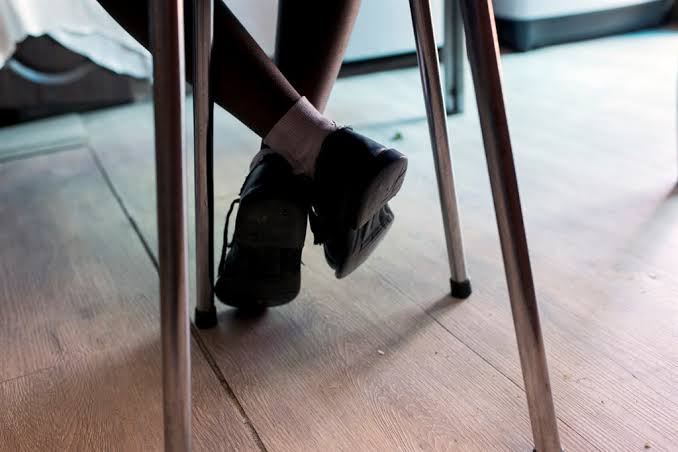By Edwin Naidu
One in five children has experienced sexual violence in schools throughout South Africa.
“This is higher than the global estimates where 18% of girls and 8% of boys have experienced child sexual abuse,” according to Likho Bottoman, the Director for Social Cohesion at the Department of Basic Education.
“One in three children (34.4%) experienced child physical abuse compared with 23% of the globalaverage.”
In South Africa, Bottoman said physical abuse was more likely to be reported by girls and by coloured and Black children than by boys, white, or Indian children.
During a briefing to the Portfolio Committee on Basic Education this week on progress made in ending school-related gender-based violence (GBV), the department said GBV was pervasive in South Africa, impacting all aspects of life.
The committee heard that women were disproportionately affected the most. However, the burden was often twofold – affecting the victim, with a ripple effect of violence on the family – in particular, children.
Bottoman told MPs that the 2020 Review on Violence Against Children in South Africa found that 19.8% of children had experienced sexual abuse.
Commission for Gender Equality (CGE) chairperson Advocate Nthabiseng Sepanya-Mogale told the committee that the commission was involved in several ongoing court cases and others that had resulted in successful convictions.
She spoke about a 2015 case in which an accused had forcefully married a 14-year-old girl and trafficked her to Cape Town.
He was charged and convicted of rape, human trafficking and assault with intent to do grievous bodily harm.
He was found guilty at Western Cape High Court and sentenced to 22 years imprisonment but appealed his conviction, arguing that he had married the girl legitimately through the customary practice known as uKuthwala, and the court should have considered the practice of uKuthwala when deciding whether his action was unlawful.
The court heard that an integral part of uKuthwala was that the “bride” may be coerced and that the practice required her to pretend to object.
The court dismissed the appeal, emphasising the need for consent by both parties to conclude a legitimate marriage and noted that customary practices such as uKuthwala could not be utilised as a legitimate defence for criminal offences.
Sepanya-Mogale told MPs that the commission’s legal department was investigating several complaints of gender discrimination received from the public or initiated by the body.
Mostly they were related to the fact that there was no guiding policy issued by the education department dealing with LGBTQIA+ learners.
The CGE is currently seeking an order that both the Western Cape education department and the national department issue regulations ensuring that transgenderlearners can fully express their gender identity.
It is also investigating an allegation of discrimination concerning six learners who identify as members of the LGBTQIA community in Newcastle, KwaZulu-Natal.
The province has concluded investigations into complaints where school-related allegations were referred to the South African Council for Educators (SACE) for intervention. This resulted in the suspension of the involved teachers.
Other complaints are still pending in court and the CGE is actively monitoring proceedings.
Sepanya-Mogale said the commission, acting on behalf of a learner from Bushbuckridge in Mpumalanga who was prevented from sitting for exams because she was pregnant, was immediately allowed to write the tests.
Again, in Mpumalanga, she told the committee that a 13-year-old learner at Vulamasango Primary School was impregnated allegedly by a 21-year-old neighbour. The case is still before the court.
The commission has been developing the GBV Index to assist in tracking trends and measuring the country’s GBVF indicators. The United Nations Population Fund istechnically supporting the process, which is expected to be completed by the end of the current financial year.
During the 2022/2023 financial year, the CGE conducted a project on school dropouts of adolescent girls during pregnancy and postpartum in selected provinces.
The commission said there was a higher teenage pregnancy rate in more rural provinces like Limpopo, Mpumalanga and Eastern Cape compared to urban provinces such as Gauteng and the Western Cape.
On measures by the department to promote gender sensitive classrooms, acting Director-General Dr Granville Williams said this was addressed by providing comprehensive sexuality education.
It included access to sexual and reproductive health services (secondary schools), including a focus on the prevention of alcohol and drug use and learner pregnancy as risk factors for GBV.
In primary schools activities mainly focused on raising awareness of social justice and vulnerabilities, such as reporting abuse and support for GBV-affected learners.
In addition to the curriculum interventions, the department also implements the Girls and Boys Education Movement (GBEM) through the support of Unicef, a learner participation movement.
The aim of GBEM is to encourage girls and boys to work together as equals and to foster respect for all genders’ human dignity and rights.
The GBEM programme is also part of the co-curricular offering in the Care and Support for Teaching and Learning (CSTL) framework, which coordinates multi-sectoral support for schools.
Another key pillar in the CSTL framework relates to the promotion of social cohesion, social inclusion and human rights, particularly children’s rights.
Whittle told the committee teacher unions had signed an agreement through the Education Labour Relations Council that when teachers were found guilty of sexual offences, they would be automatically blocked by the South African Council of Educators to ensure that they never taught again in the country.
He said the department would continue to collaborate with sister departments and agencies to implement measures to create awareness and stop GBV.
Through the “Let’s Talk” programme, it would also continue to engage communities on social matters that required a partnership.
Whittle emphasised that anti-GBV messages needed to start as early as possible, both at home and school.
In August, during an induction session with Basic Education Minister Siviwe Gwarube and her deputy, Dr Reginah Mhaule, the committee expressed concern about various matters, including the safety of learners and teachers in schools.
INSIDE EDUCATION







